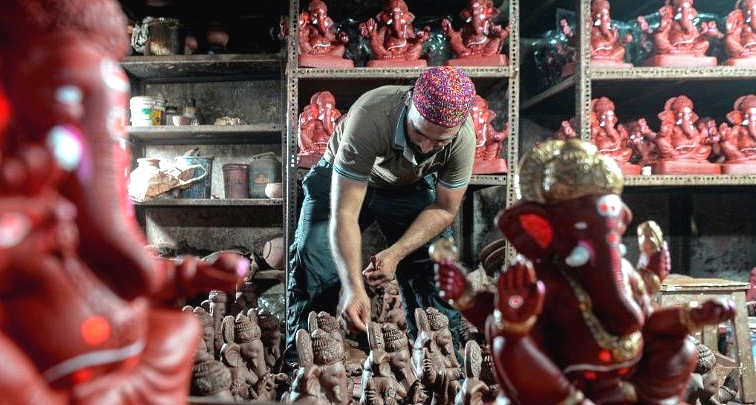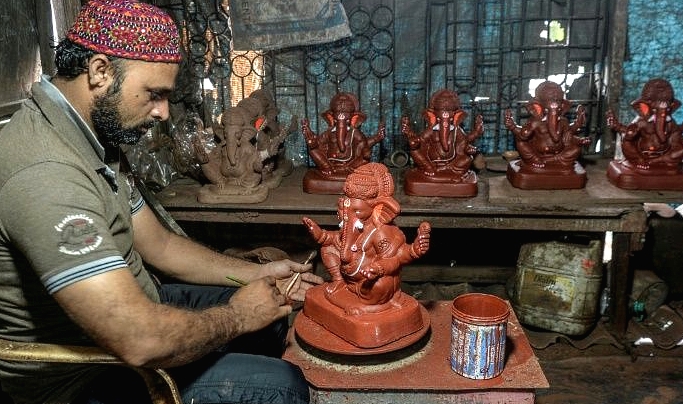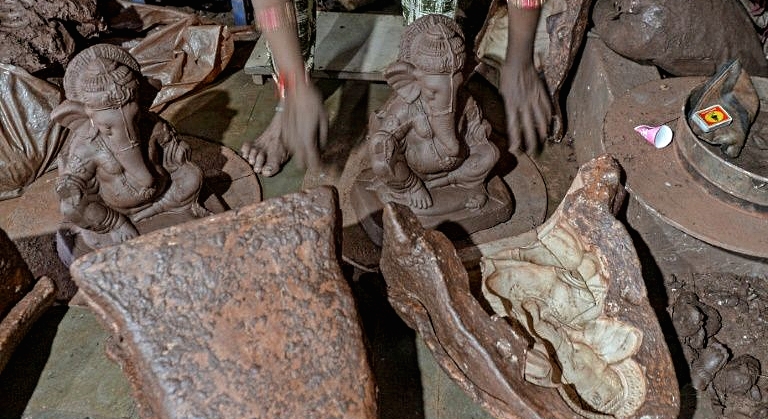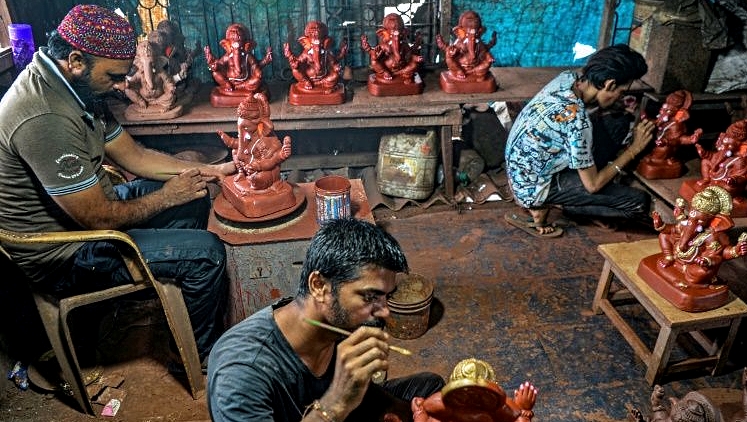
By Vishal MANVE
MUMBAI (AFP) — Since the coronavirus pandemic clobbered his pottery business, one Muslim artisan from India's largest slum has turned to a Hindu god to revive his fortunes by making environmentally friendly Ganesha idols for an upcoming festival.
Potter Yusuf Zakaria Galwani works with his two brothers in the Mumbai shanty town of Dharavi to create 13-inch-tall statues out of terracotta clay, counting on the god — who is revered as the remover of obstacles — to give his business a much-needed boost ahead of the celebrations.
Ganesh Chaturthi — which kicks off on Saturday — is embraced with gusto in India's financial hub.
The Hindu festival traditionally ends with devotees leading massive processions to the Arabian Sea to immerse elaborately decorated figurines of the much-loved elephant god into the water.
But this year's celebrations are expected to be muted, with authorities in the virus-plagued city urging people to mark the 10-day festival at home in a bid to ensure social distancing.

"As our pottery sales dwindled, I decided to make Ganesha statues… as a means of survival and also to promote environmentally friendly (alternatives)," 40-year-old Galwani told AFP.
Activists have long criticised the practice of immersing the idols in the sea, arguing it contributes to water pollution, and Galwani agrees.
"Every year, we see huge Ganesha statues made from plaster of Paris washing up on the shores after the immersion. This affects our local environment and marine life as well," he said.
His clay creations are designed to disintegrate quickly and turn into soil. They also contain a seed inside which can germinate if watered like a plant.
Sold for 1,500 rupees ($20) each, Galwani has received orders for 800 statues so far and hopes to see his neighbourhood bounce back economically after tackling the virus.
Made famous by the 2008 Oscar-winner "Slumdog Millionaire", Dharavi was thrown back into the spotlight in April over fears that the lack of social distancing or sanitation in its densely packed streets would make it an easy target for the virus.
But a sharp focus on testing accompanied by tough quarantine and lockdown measures have seen infections plunge across the slum.

"Previously I lost business as customers were wary of stepping into the slums," Galwani said.
"Now, things have changed and they're willing to even come and pick up their own orders."
A third-generation potter, he said he saw no conflict in practising his faith while catering to the needs of Hindu worshippers.
"What's the big deal if I am a Muslim making statues of Hindu deities like Ganesha? India is a secular democracy and we have grown up with many cultures living together," Galwani added.
Although officials have not issued an outright ban on sea immersions this year, they have imposed restrictions on local celebrations.
Devotees are barred from making public offerings to the deity and organisers have been ordered to sanitise any outdoor marquees several times a day.
India has registered over 2.6 million infections — the third-highest in the world — with western Maharashtra state, of which Mumbai is the capital, responsible for a fifth of coronavirus cases nationwide.
Pandemic deaths across the country passed 50,000 on Monday.

ADVERTISEMENT
ADVERTISEMENT


































